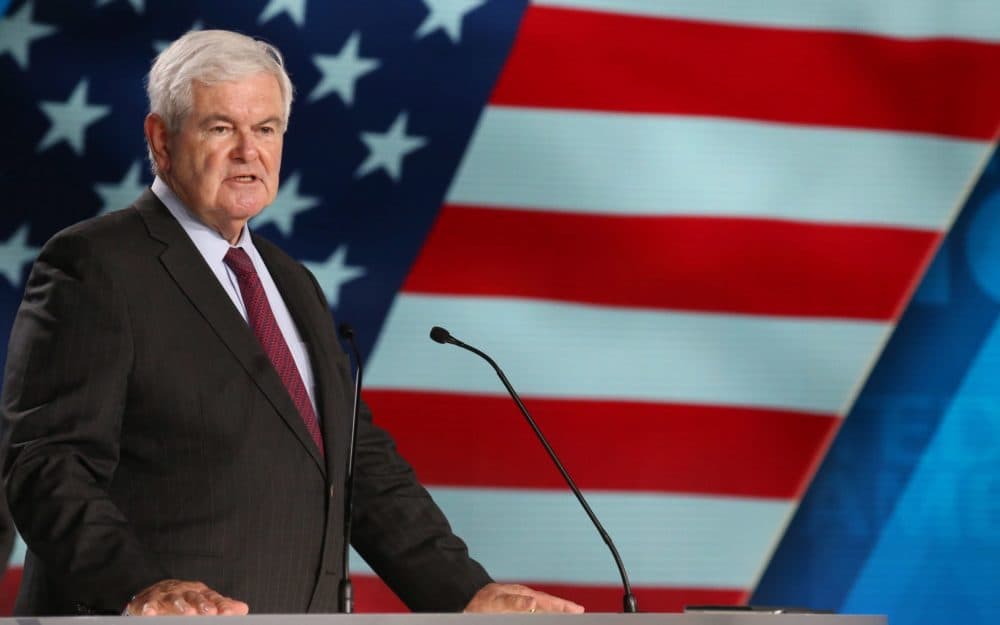By: Newt Gingrich
Originally published on Gringrich360 on March 27, 2024
It’s no secret that the American people are more concerned about crime and safety than almost any point in the last 30 years. Headlines are dominated by acts of violence and lawlessness, instilling fear, panic, and anger in the hearts of many hardworking citizens.
The leftwing defund the police battle cry has been totally destructive. However, those of us who really want public safety should not pretend all our policing strategies are perfect.
Our nation’s public safety systems are not immune from the bloat, waste, and ineffectiveness that naturally grows in massive government operations.
The federal supervised release system is a glaring example of such government bloat. Originally conceived as a mechanism to ensure accountability of individuals exiting federal prison – and guide their safe reintegration into society – this system has followed the typical trajectory of government programs. It has ballooned to triple its size over the last quarter-century. It now drains $500 million from taxpayers each year.
Our public safety return on this colossal investment is a system that squanders resources monitoring those who pose no threat – and neglects keeping a close eye on high-risk individuals. It also destabilizes communities and leaves them exposed to crime. In fact, the federal supervised release system doesn’t work for anyone – those under supervision, officers, the economy, or law-abiding citizens.
Hard data supports this disappointing picture. Long supervision sentences often lead to poorer public safety outcomes. This leaves us all more vulnerable. Something must change.
The bipartisan Safer Supervision Act is one solution. This legislation is a crucial step towards reducing the size of government, safeguarding economic freedom, and enhancing public safety – all of which are core conservative principles.
Consider this real-life example from the current broken system. Almost two decades ago, Daniel Lynn Brown was convicted of drug charges. He served 15 years and was released under the First Step Act, which President Donald Trump signed into law. He was placed on 10-year federal supervision, which began in April of 2020.
Nearly four years later, Brown has committed zero violations. He’s also maintained full-time employment as a project manager at a construction company, purchased two homes, and been a devoted father to his five children.
Yet, Brown remains under federal supervision. He’s not allowed to travel without approval from his probation officer – which has led him to turn down numerous work opportunities, including a “dream job” helping ex-prisoners turn their lives around. Random drug testing and check-ins with his probation officer take him away from work and family obligations. Despite posing no public safety risk, Brown remains trapped in an ever-expanding government bureaucracy.
Browns’ experience flies in the face of basic conservative values. The government exists to keep us safe and protect our rights. Keeping Brown on needless federal supervision does neither. Instead, it wastes our tax dollars and keeps him from reaching his full potential.
Under the Safer Supervision Act, Daniel would have a clear path off of supervision at the halfway point of his term. He would receive guidance on how to request early termination, whether he qualified for presumptive early termination based on his good conduct and compliance, the factors weighed by the court, and the ability to request legal counsel, if needed.
This streamlined process, with clear standards for, or against, early termination, would better safeguard law enforcement resources and reduce wasteful spending – all while incentivizing good behavior, compliance with conditions, and rehabilitation.
Moreover, under the Safer Supervision Act, courts would conduct individualized assessments for each person placed on federal supervision. This would ensure that the government only imposes this sentence when a legitimate public safety interest is served and with conditions that keep communities protected. This would help shift compliance toward a meaningful measure of rehabilitation and success, rather than simply an exercise in arbitrary and complex rule-following.
As President Ronald Reagan said in his 1985 State of the Union address, “Every dollar the federal government does not take from us, every decision it does not make for us will make our economy stronger, our lives more abundant, our future more free.” President Reagan was right then and now. I’d add to his remarks that every dollar we don’t throw away supervising people such as Brown is a dollar that could be spent protecting Americans from real danger.
This is why the Safer Supervision Act has earned the endorsement of the Federal Law Enforcement Officer Association. Unlike Department of Justice bureaucrats, these men and women are focused on protecting crime victims, encouraging rehabilitation, and seeing that people become productive, law-abiding members of society. These officers’ caseloads can sometimes exceed 100 cases per officer – about 50 percent higher than recommended. They know better than anyone how the current system wastes time and resources.
Across the country, conservative leaders have been fighting for commonsense reforms that keep the peace and rein in big government. Former Texas Gov. Rick Perry signed legislation that helped low-risk, nonviolent offenders find paths to rehabilitation. The result was a 29 percent drop in crime and a more than $2 billion-savings in prison costs. Oklahoma and Missouri both shrunk their prison populations by creating similar pathways to redemption for low-risk offenders.
It’s little wonder that conservative leaders at the federal level are champions for the Safer Supervision Act. Congressmen Wesley Hunt, Burgess Owens, and Byron Daniels; Sens. John Cornyn and Mike Lee; and more support this bill.
With a national election on the horizon, passing the Safer Supervision Act would send a clear message: When it comes to keeping Americans safe and cutting government waste, conservatives mean business.
t they are to be taken one at a time, as conservatives and liberals, Democrats and Republicans, seek common ground. Passing the Safer Supervision Act is a step that Congress ought to take now.
